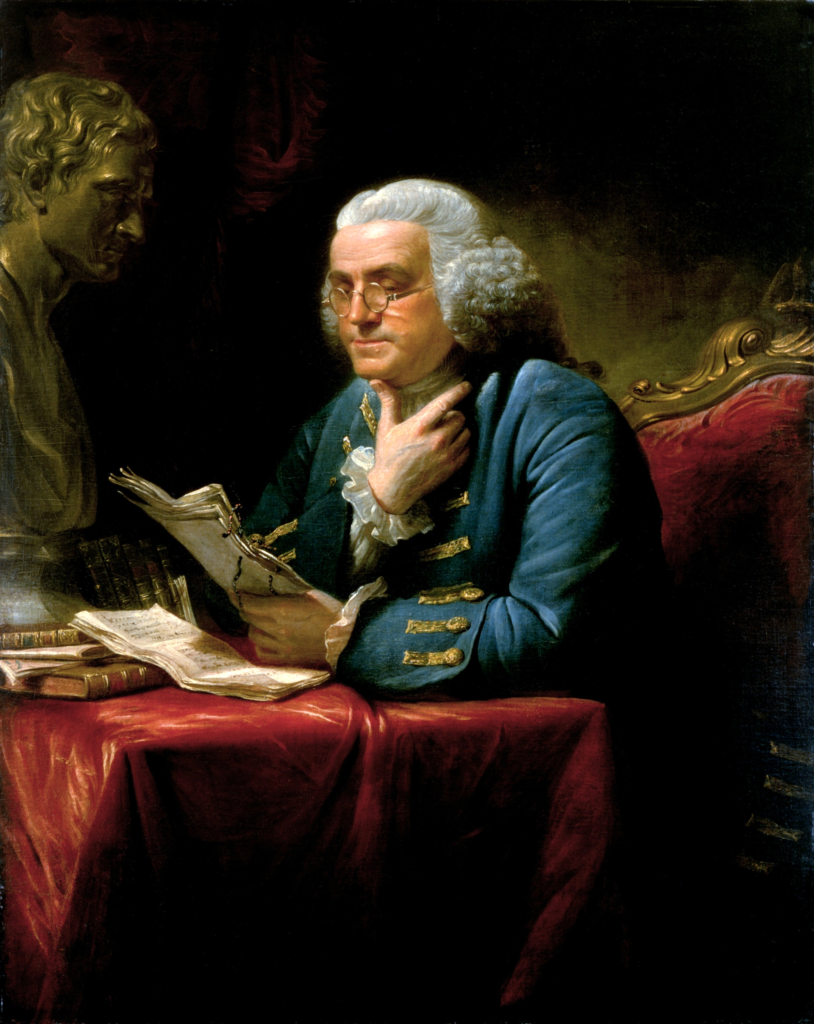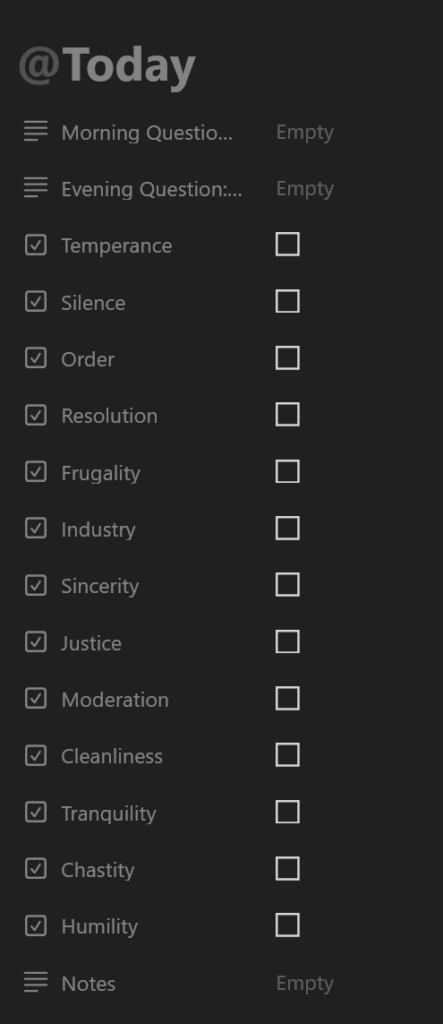
When life gets you down, it’s worth remembering that anybody with internet access can freely download and read the entire Harvard Classics – thousands of hours of cultivated quality reading that would have been the envy of virtually anyone in history. In a spontaneous (and perhaps over-ambitious) desire to read the whole thing, I began with Benjamin Franklin’s autobiography – the first piece of literature in the first volume of this hefty tome of knowledge. Franklin, an avid reader himself, surely would have been absolutely giddy with the prospect of such a resource, and I recommend anyone with the inclination to check out its contents – you can find it all on Gutenberg.org.
Flipping through Franklin’s recollections on his life, one can’t help but admire the man. Famous today as one of America’s founding fathers, Franklin was industrious and productive throughout his life, prolific in his achievements, and widely liked by those around him. Within his autobiography he clearly outlines a system he implemented for himself in order to become a more virtuous person. In his broad reading, he distilled thirteen virtues that he thought were instrumental to a moral life. They were, in his words:
- Temperance: Eat not to dullness. Drink not to elevation.
- Silence: Speak not but what may benefit others or yourself. Avoid trifling conversation.
- Order: Let all your things have their places. Let each part of your business have its time.
- Resolution: Resolve to perform what you ought. Perform without fail what you resolve.
- Frugality: Make no expense but to do good to others or yourself: i.e., Waste nothing.
- Industry: Lose no time. Be always employed in something useful. Cut off all unnecessary actions.
- Sincerity: Use no hurtful deceit. Think innocently and justly; and if you speak, speak accordingly.
- Justice: Wrong none by doing injuries, or omitting the benefits that are your duty.
- Moderation: Avoid extremes. Forbear resenting injuries so much as you think they deserve.
- Cleanliness: Tolerate no uncleanness in body, clothes, or habitation.
- Tranquility: Be not disturbed at trifles, or at accidents common or unavoidable.
- Chastity: Rarely use venery but for health or offspring; never to dullness, weakness, or the injury of your own or another’s peace or reputation.
- Humility: Imitate Jesus and Socrates.
Within a notebook, he would lay out his week – on one axis was each of the thirteen virtues, on the other the seven days of the week. Whenever he failed to live up to his expectations in any given domain, he would mark it. Starting with ‘Temperance’ – which he viewed as a means to clarify the mind and commitment to the other twelve – he would focus, week by week, on each consecutive virtue, trying to have a flawless record for that virtue in its week of focus.
In Notion, I captured this by creating a template which creates a record every day with today’s date – you are offered his morning and evening prompts – which were simply “What good shall I do today?” and “What good have I done today?”
Then the record has a checkbox property for each of the thirteen virtues, wherein you check off any you feel you failed to live up to that day.
The “Today” view shows only records created today (which, if you set it to automatically create a record daily, should be consistently today’s journal). The archive view shows all of them – where you can review your strengths and weaknesses.
I find it easiest to open the record and do your review from there, rather than the table view, which stretches a little too much due to the number of checkboxes. You could condense it a little to fit it all on your screen, if you were so inclined.

If you’re interested in giving the journal a try, you can access the template for free through this link.
Let me know if you find it useful, or if you have any suggestions!


